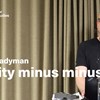offer
The triumph of secular individualism – A new mathematical model offers clear-cut answers to how morals will change over time
Irina Vartanova, Kimmo Eriksson and Pontus Strimling at the Institute for Futures Studies have created a model to predict changes in moral opinion. –Ourmodel did considerably better than all known methPontus Strimling.
Courses & conferences
In order to offer more in-depth knowledge in research methodology and application the Institute organizes courses open to researchers and to people who use research in their work. In addition, we orga
In defense of value incomparability: A reply to Dorr, Nebel, and Zuehl
Noûs Abstract Cian Dorr, Jacob Nebel, and Jake Zuehl have argued that no objects are incomparable in value. One set of arguments they offer depart from a principle they call ‘Strong Monotonicity’, which
Costly punishment in the ultimatum game evokes moral concern, in particular when framed as payoff reduction.
Journal of Experimental Social Psychology, Volume 69, p. 59-64. Abstract The ultimatum game is a common economic experiment in which some participants reject another's unfair offer of how to split some
Socioeconomic Advantage or Community Attachment? A Register-Based Study on the Difference in National Lutheran Church Affiliation Between Finnish and Swedish Speakers in Finland
Journal for the scientific study of religion Abstract Secularization theory has been challenged by research showing religious persistence and upswing in contexts across the world. In Europe, particularl
Non-Cognitivism and Fundamental Moral Certitude: Reply to Eriksson and Francén Olinder
Australasian Journal of Philosophy, Volume 95, Issue 4, pp. 1-6. doi.org/10.1080/00048402.2016.1269352 Abstract Accommodating degrees of moral certitude is a serious problem for non-cognitivism about eth
The Connection Between Moral Positions and Moral Arguments Drives Opinion Change
Nature Human Behavior Abstract Liberals and conservatives often take opposing positions on moral issues. But what makes a moral position liberal or conservative? Why does public opinion tend to become m
Money-Pump Arguments
Elements in Decision Theory and Philosophy, red. Martin Peterson. Cambridge University Press Abstract Suppose that you prefer A to B, B to C, and C to A. Your preferences violate Expected Utility Theory

Elizabeth Finneron-Burns
I am a post doc working with Krister Bykvist and Gustaf Arrhenius on the Valuing Future Lives project. I submitted my DPhil thesis at Oxford University in September 2015. Before studying at Oxford I wo

Reality minus minus - James Ladyman, Professor of Philosophy
There is plenty of techno-optimistic takes on virtual worlds. They will offer us opportunity for new and exciting experiences, as real as reality, it is said. But what about the costs? In a talk from








